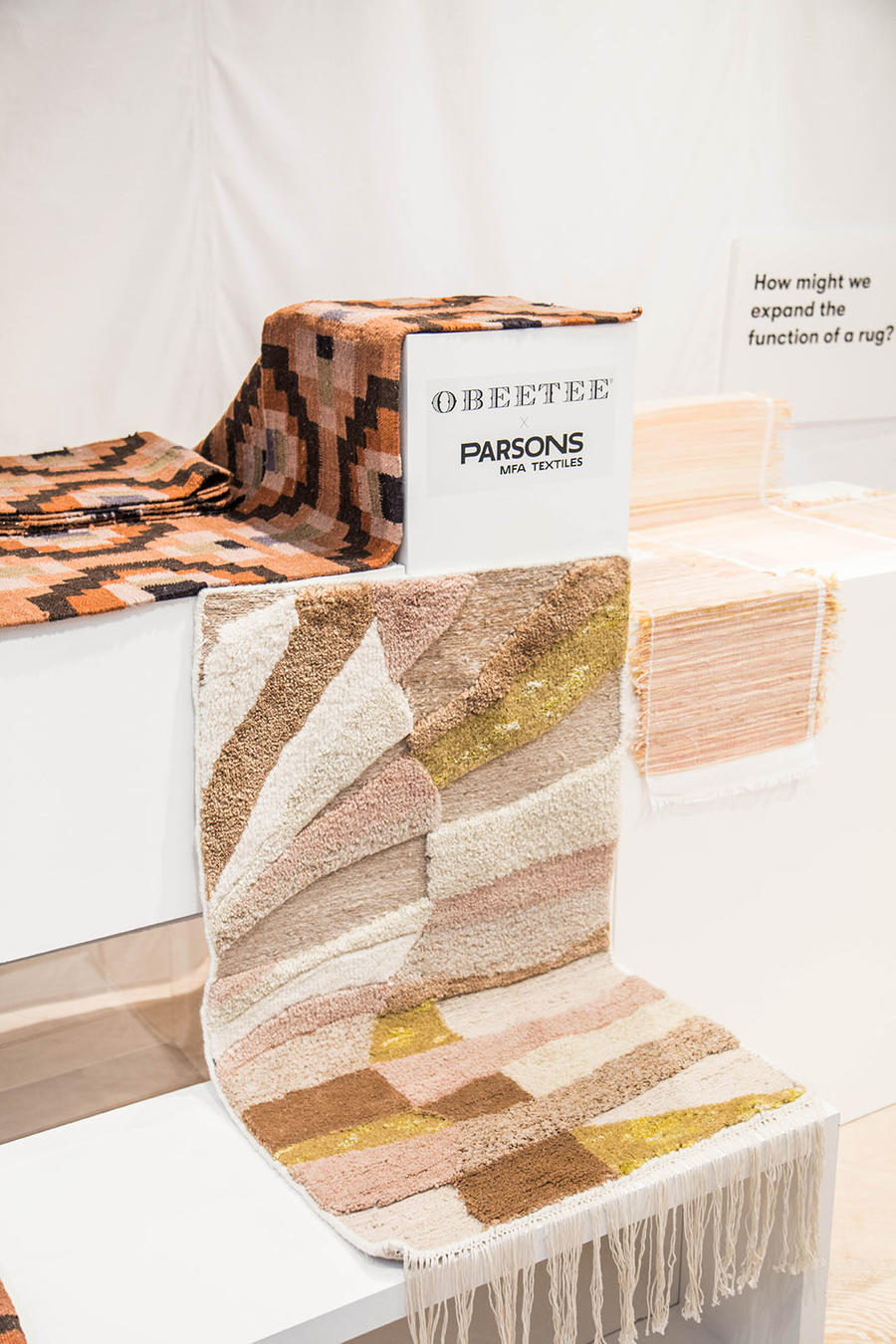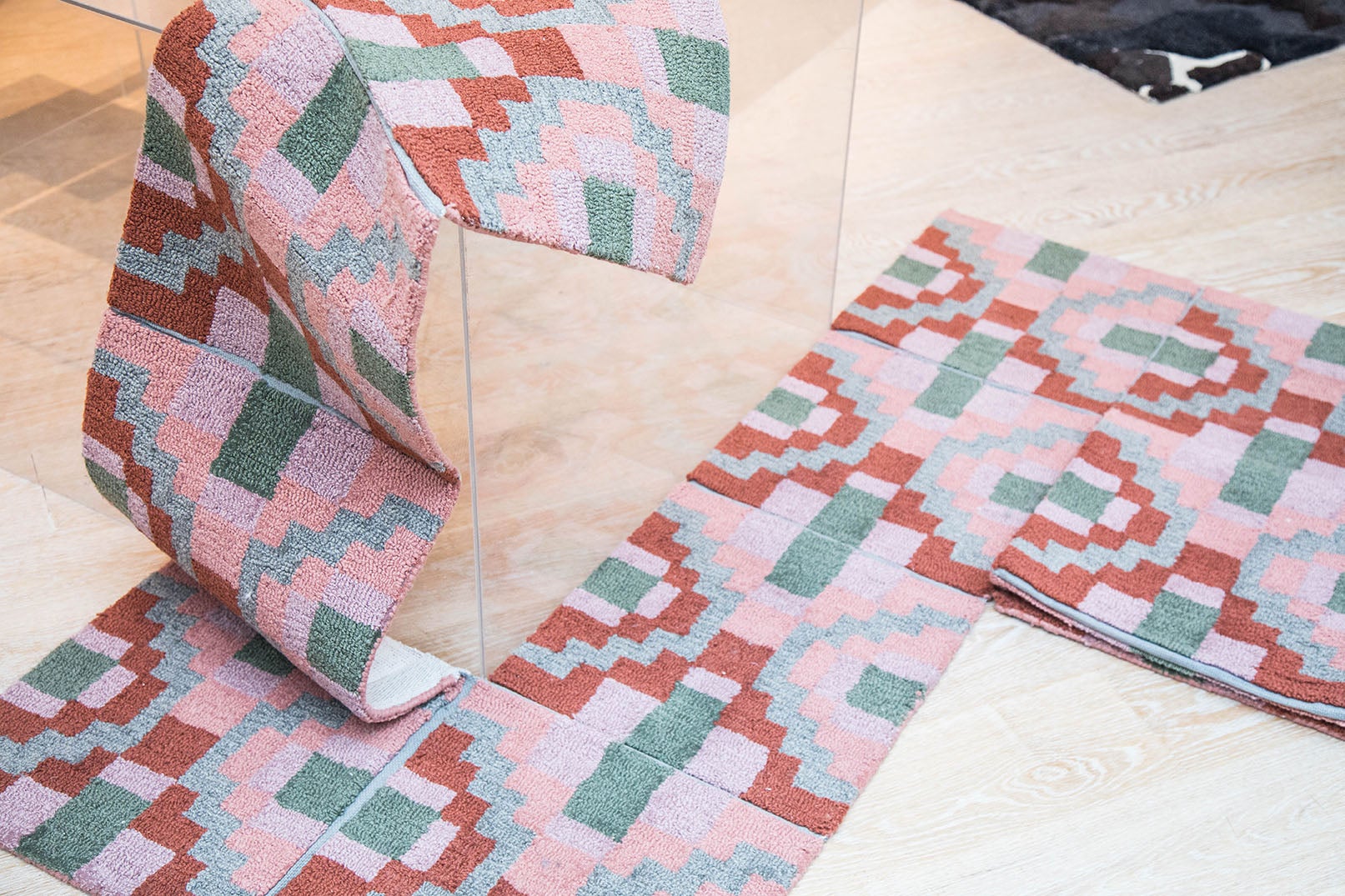When The New School’s Parsons School of Design launched a two-year MFA program dedicated to textiles last fall, the faculty was keen to have a partnership with a brand that would allow its students to fully explore both the present and future of the medium. The school struck up a deal with Obeetee, a luxury hand-woven rug company, that would give students the opportunity to experience every facet of the rug making process—from meeting the weavers in India to interacting with customers in the brand’s New York showroom.
“Through our partnership with Obeetee, students in the MFA Textiles program were able to work with one of the world's leading rug brands, where they gained invaluable experience,” Burak Cukmak, dean of fashion at Parsons, tells Business of Home. “They were challenged to help Obeetee innovate their products, move into new markets, define the role of a rug in daily life, and think about how to push the boundaries of tradition through new methods centered around sustainability and more.”

According to Obeetee’s chairman, Rudra Chatterjee, the partnership was a chance for the brand to share what they do and to benefit from the academic perspective craft that Parsons students could bring. “We want to know how we can work better with our weavers,” Chatterjee says. “This is a consequential industry. Outside the science and art of this, which the students already know, the social impact is important for them to see.”
The MFA students were able to study with Obeetee's weavers in Mirzapur, India for a month and have since been designing several innovative rug prototypes with sustainability and luxury in mind. Their creations are on display at Obeetee’s Chelsea showroom through the end of the month. “This exhibition is a culmination of their work over the past few months and shows how many new concepts they’ve brought to this craft,” says Chatterjee. “This is a product that’s been around for a century, but these students incorporated modern technology and even ideas about ergonomics to their designs.”
As Obeetee celebrates its 100th anniversary, board member Paul Austin feels that the timing of the new MFA program is uncanny. “This is a time when hand and machine are trying to reconcile in many ways,” he says. “So, it’s exciting for Parsons to have this program and to hear from students who seem to believe that the future will not be dystopian for crafts people. They believe that, like the past, the future will prioritize the skill of the hand as well as the social impact of the craft. There’s a nice balance in that.”





























